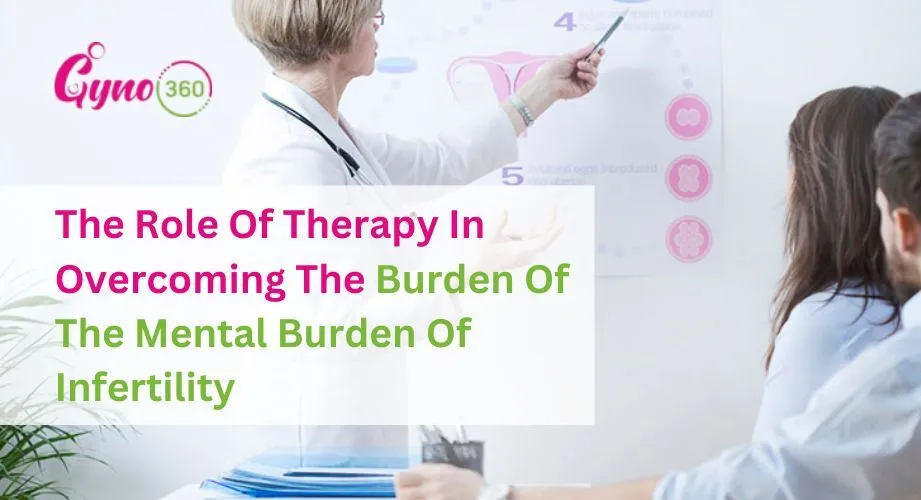Infertility is a personal and challenging journey that not only affects physical health but also emotional well-being and mental health. For individuals and couples, infertility becomes, with it, loss, frustration, guilt, and isolation. While fertility treatments look after the physical aspects, therapy is important to cope with the mental burden that infertility brings along. The emotional toll of infertility can strain relationships and disrupt daily life. Coping with the uncertainty of fertility treatments can intensify the situation. Therapy provides emotional support, coping strategies, and a safe place to process the feelings.
Types of Therapy
1. Individual Therapy
It is an approach that helps individuals go through the emotional challenges of infertility. It provides a safe space for them to open up about their feelings of sadness, guilt, anger, frustration, etc. A trained therapist helps clients to identify and challenge the negative patterns and replace them with positive thoughts. Therapies help individuals to regain their confidence and find ways to cope with everything that happens during that duration. This type of therapy gives emotional balance and clarity on this stressful journey.
2. Couple Therapy
Infertility affects both partners, and that is why taking therapies together is recommended. Such therapies provide a space for them to discuss their feelings together and help in supporting each other. It creates a platform for them to express their emotions, fears, and frustrations openly. Therapy helps them in understanding each other’s point of view, and this reduces misunderstanding and strengthens their relationships. By working with a therapist, couples will learn strategies to make their relationship work.
3. Group Therapy
Group therapy helps individuals to cope with infertility altogether. Sharing your thoughts and experiences in the group reduces the feelings of isolation and cultivates a feeling of belongingness. Facilitated by mental health professionals, groups provide a safe space to know about challenges and emotions that revolve around infertility. Group members find encouragement in hearing group stories. All in all, the shared experiences in the group make the overall infertility journey less challenging and are just the right source for some practical advice.
Some of the benefits that therapy offers are:
Infertility is a journey that you need to do on your own. Others around you can offer you advice, but your struggles will be your own. Friends and family will offer you advice, but you may not know the right path to follow it. Therapy provides you a safe and supportive space where you can express your feelings and get a supportive space without criticism. By feeling heard and understood, you are doing the right thing for your mental health.
Infertility treatments are uncertain, and this is why they bring along confusion and stress. Therapy offers many effective tools to manage these challenges, such as breathing exercises and relaxation strategies. A therapist will help identify what issues trigger you and then eventually will help you cope with it. With therapy, you can manage the uncertainty of infertility with calmness and composure. Stress management also has a positive impact on the physical health of individuals.
Your overall journey throughout infertility can help you test your self-worth. Therapy helps individuals to have their confidence back. A skilled therapist helps you to cope with these challenges and change all your negative thoughts to positive thoughts. Therapies help you to grow personally and move ahead in life. When you approach difficulties with a problem-solving mindset, your emotional stability and hope increase.
So, if you are struggling with infertility, remember you are not alone, and support is always available. Going for therapy is just the right way.



